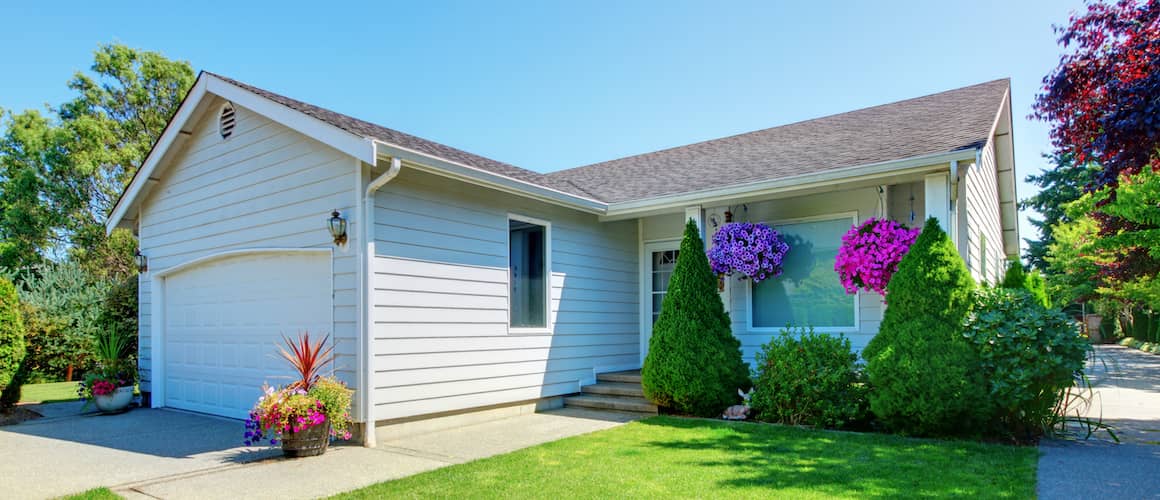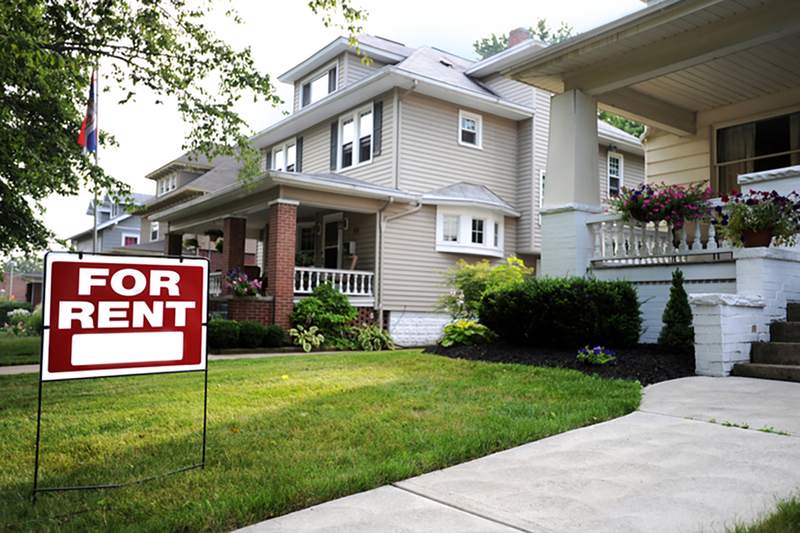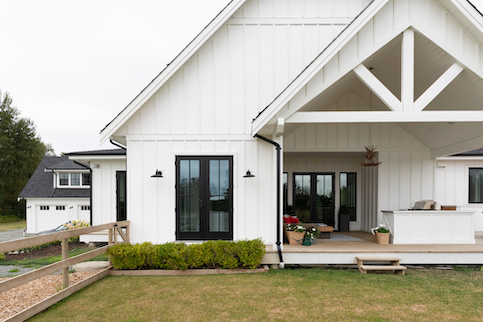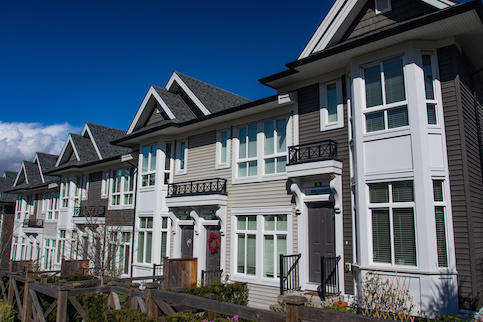The journey of real estate investing holds the promise of significant financial milestones. While the path may seem daunting at first, navigating the realm of real estate investment could be the key to unlocking your financial aspirations.
The first step is learning what an investment property is, how to buy one and if it fits into your portfolio.
What Is An Investment Property?
An investment property is real estate purchased by a single investor or group of investors with the intent of turning a profit. Real estate investing can generate a return on investment through rent, development and resale income.
When buying a rental, you may come across common types of investment properties, including residential rentals, commercial properties, and multifamily homes. Investing in rental properties, especially multifamily homes where an investor can live in one unit and rent the others, offers a dual benefit of generating rental income while potentially reducing personal living expenses. This strategy can be particularly attractive for new investors looking to enter the market while optimizing profitability.
Compare Mortgage Offers From Verified Lenders:
See What You Qualify For
Buy A Home
Discover mortgage options that fit your unique financial needs.

Refinance
Refinance your mortgage to have more money for what matters.
Tap Into Equity
Use your home’s equity and unlock cash to achieve your goals.
Pros And Cons Of Buying Investment Properties
Real estate investment provides potential financial gains but comes with associated risks and challenges, requiring careful consideration and strategic planning.
Pros
There are plenty of benefits to owning investment properties, some of these benefits include but are not limited to:
- Passive income: Renting out property to tenants allows you to generate passive income; an income acquired with little to no effort or labor. Tenants make regular payments providing a steady and relatively hands-off income stream. Passive income is one of the most prominent benefits of owning investment property, as it’s an attractive option for those looking to make an easy return on their investment.
- High return on investment (ROI): Return on investment, or ROI, is a metric that tells you what kind of profit you’ll make on an investment. It compares the amount of money you’ve put into the property to its current value. ROI’s depend on many factors including careful property selection, effective cost management, and strategic improvements to enhance both rental income and property value.
- Equity buildup: Building up equity in an investment property typically involves consistently paying down the mortgage, which increases the owner’s stake in the property over time. This increased equity can be advantageous for investors, as it represents a higher ownership share, potentially leading to greater profits upon selling the property or using the equity for other investments.
- Appreciation: Considering our nation’s current financial status, the implications of inflation make it likely that investment properties will appreciate over time. Property appreciation, especially in residential properties, increases a real estate investor’s profits, especially if the investment is long-term.
Cons
While one may reap many benefits of an investment property, there are potential downsides and risk factors to take into consideration before investing.
- Limited investment opportunities: Limited opportunities in certain areas for real estate investing can stem from factors such as oversaturation of the market, stringent zoning regulations or a lack of economic growth. Additionally, low demand, unfavorable demographics or high property prices may constrain investment potential in specific regions. Understanding local market conditions and constraints is crucial for investors seeking profitable opportunities in real estate.
- Cash flow: Cash flow issues in real estate can interfere with expensive investments by creating challenges in covering mortgage payments, property maintenance costs and other ongoing expenses. Insufficient rental income or unexpected vacancies can lead to financial strain, potentially forcing property owners to sell hastily or seek additional financing, both of which may negatively impact long-term returns. Effective management of cash flow is essential to sustain and maximize returns on high-value real estate investments.
- Market risk: While navigating the real estate market, investors have no control over the market, posing a potential risk factor. A fluctuating market can be an even bigger risk to those planning on investing for the long term as there can be unexpected changes in economic conditions, interest rates and even demographic shifts. As an investor, be sure to thoroughly assess and adapt your strategies to mitigate potential risks associated with market volatility.
- Upkeep: Depending on the size and condition of your investment property, it may require a significant amount of upkeep and maintenance, as keeping the property in its best condition would be in your best interest to preserve its value and appeal to potential tenants or buyers. Many investors don’t have the time, tools or skill to maintain an entire property that they don’t live in. In turn, keep in mind that owning an investment property may come with your fair share of maintenance and contractor fees.
Should You Buy An Investment Property?
As with all financial decisions, a property that brings in profit has some advantages and disadvantages to keep in mind. Before sinking thousands of dollars into a this type of investment, it’s critical to take several factors into consideration.
While there are certain basic steps you need to take, if you have any questions about your unique situation, it’s recommended you consult with a legal or financial professional.
Review Your Personal Finances
An investment property can become an expensive venture. It’s important to be financially ready before jumping in. Lenders typically require a good credit score, often aiming for scores above 700, to secure favorable mortgage terms. Additionally, a healthy debt-to-income ratio (DTI), preferably below 43%, is crucial for demonstrating financial stability and repayment capacity. Investors may also need to provide proof of sufficient cash reserves to cover down payments, closing costs and potential vacancies. Meeting these financial requirements is essential for qualifying for a mortgage on an investment property and establishing a solid foundation for a successful real estate investment venture.
Save For A Down Payment
Saving for down payments is always an important part of home buying, and it’s especially important when buying investment properties. That’s because lenders often impose stricter guidelines. While individuals can purchase a primary residence with as little as 3% down, the majority of investors aiming to acquire rental properties must typically set aside a more substantial 15% to 20%. The down payment directly influences the loan-to-value ratio (LTV), a key factor lenders consider when approving loans. A higher down payment reduces the LTV, potentially improving loan terms and interest rates, but the challenge lies in accumulating a significant upfront sum to meet lender requirements for these types of properties.
Have Emergency Funds Available
Investing in real estate can be a great endeavor that comes with many financial benefits. However, the market can be unpredictable, and you should always have emergency funds available. Having emergency funds allows investors to mitigate the risks associated with unforeseen challenges or cash flow problems. Without sufficient savings or cash reserves, large and unexpected costs related to down payments, closing, renovations, legal fees and general business expenses can lead to financial distress. Having savings to fall back on ensures the ability to cover these expenses without resorting to high-interest credit cards, loans or risking the loss of the property through foreclosure or forced sale. An emergency fund safeguards the overall stability of the real estate investment.
Consider an Investment Partner
Going in on a property with an investment partner can offer several benefits, such as pooling resources to afford a property, sharing maintenance costs and leveraging combined skills for cost-effective repairs. Pooling financial resources allows for the joint purchase of a property that might be otherwise unattainable individually. Shared maintenance costs and the combination of home repair skills can result in significant savings on professional contracting expenses. It’s imperative to carefully choose a partner based on trustworthiness, responsibility and a proactive approach to maintenance. Additionally, thorough communication and clearly defined roles are vital for a successful partnership, reducing the risk of legal complications and optimizing the overall success of the real estate investment.
If buying a rental property isn’t the right fit, explore different types of real estate investments like Real Estate Investment Trusts (REITs) or crowdfunding platforms. REITs offer diversified portfolios without direct ownership, while crowdfunding requires lower capital and less hands-on management. These options provide flexibility for those not ready for property ownership, and consulting with a professional can offer personalized guidance for your financial goals.
How To Buy An Investment Property
Buying your first investment property requires a strategic approach. Explore these essential steps to ensure a successful and informed investment.
1. Explore Investment Property Loans
Understanding the various loan options, such as conventional loans and jumbo loans, is vital for tailoring your financing to the specific needs of your investment. Conventional loans, typically suited for properties with lower price points, offer standardized terms, making them accessible for many investors. However, they require you to put anywhere between 15%-25% down. On the other hand, jumbo loans become relevant for high-value properties, accommodating larger financing needs. Evaluating these loan options allows investors to optimize their capital structure, leverage favorable interest rates and align their financial strategy with the unique characteristics of their chosen investment property.
2. Apply For Mortgage Preapproval
Before beginning your home search, it’s advisable to secure mortgage preapproval, as this step not only clarifies your affordable housing range but also sets you apart from prequalification by involving a comprehensive review. A Verified Approval Letter (VAL), a step beyond prequalification, entails a thorough assessment, including a hard credit pull and review of proof of income and assets. It provides a more accurate picture of your eligibility. Having a VAL not only empowers you to make informed decisions but also signals to sellers that you are a serious and credible buyer. This could strengthen your position in a competitive real estate market.
3. Find The Right Investment Property
Selecting the right property is paramount. Be sure to carefully assess and determine your goals, as different properties can align with varying objectives. When you purchase any type of home, location is always one of the defining factors of the purchase. In this case, location will influence the demand and profitability of your investment. A commercial property in a prime location can attract businesses, while a residential property in a popular area is likely to draw tenants. If you’re unsure about choosing the ideal location, seeking the expertise of a real estate agent can be valuable. Their knowledge of local markets can provide insightful advice on high-demand locations, enhancing your chances of making a profitable and strategic investment.
4. Evaluate Your Return On Investment (ROI)
Evaluating your Return on Investment (ROI) provides a clear and factual assessment of a potential property’s profitability. Regardless of an investor’s experience level, ROI serves as a valuable metric for comparing different investment opportunities and making informed decisions. The basic ROI formula is straightforward,
ROI = (Investment Gain − Investment Cost) ÷ Investment Cost
Factors such as repair and maintenance costs, initial borrowing amounts and mortgage terms can influence the calculation, emphasizing the need for a thorough analysis. By breaking down common scenarios and accounting for these variables in your calculations, you ensure a more accurate understanding of your investment’s financial viability, ultimately guiding you toward secure and lucrative real estate ventures.
5. Seek professional assistance
Engage assistance from real estate professionals, such as a qualified inspector and a real estate attorney, to ensure a comprehensive understanding of the property’s condition and legal aspects. An inspection can reveal potential issues that may not be immediately apparent, while legal advice helps navigate complex contracts and regulations. Leveraging the expertise of these professionals adds an additional layer of security and credibility, defending your investment and providing insights that contribute to a well-informed decision.
The Bottom Line
Embarking on real estate investment offers lucrative possibilities, but wise decisions are paramount. Assess the potential benefits, like passive income and equity buildup, and consider the associated risks. As you weigh these factors, it’s time to act. Start the mortgage approval process today to seize the opportunities in investment properties, ensuring a foundation for informed decisions and prosperous ventures.
Find A Mortgage Today and Lock In Your Rate!
Get matched with a lender that will work for your financial situation.

Angelica Victor
Angelica Victor is a freelance writer. She attends Hampton University and studies English with a concentration in creative writing.












